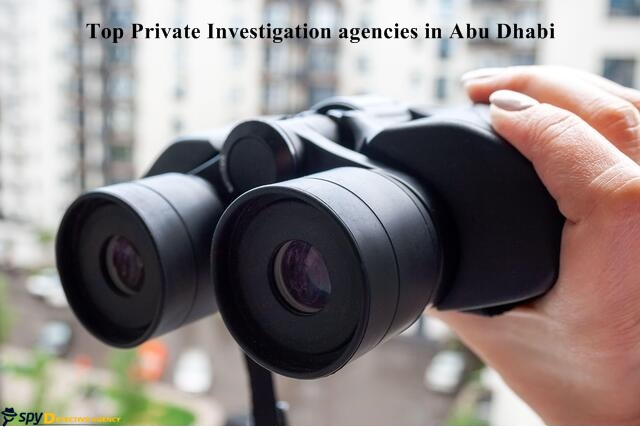When it comes to marriage, it is necessary to make sure that you know all the facts before tying the knot. That is why conducting a matrimonial investigation in India is a wise idea. It can help you intake the right decision for your entire life. But what exactly should you look out for when conducting a matrimonial investigation in India? Read out to understand more information!
Understanding the Indian matrimonial investigations involve extensive background checks on the prospective spouse. As the trend of pre-matrimonial inquiries is at its peak, people in India are now hiring detective agencies to investigate their future spouse backgrounds. The detective agency in Delhi offers services such as character verification, family history checks, and financial background checks to ascertain if the prospective partner is suitable or not. These detective services help fetch information associated with the individual academic qualifications, job profile, and other important information required for a successful and healthy relationship. With an experienced team of professionals, the detective agency provides information along with helpful advice and guidance. It ensures a secure future for both parties involved.
Private investigators looking into financial information, social media presence, past relationships, and so on To ensure that all pre-matrimonial investigations conduct with the highest degree of secrecy. A spy detective agency in Delhi and India understands how imperative it is to be able to trust prospective partners before you marry. Consequently, we take every measure possible to maintain the confidentiality and accuracy of our investigations. We do this to give our clients peace of mind and reassure them that their partner is trustworthy.
We also provide personal interviews with family and friends to get a better picture of someone’s character, with the increasing demand for a pre-matrimonial investigation, detective agencies in Delhi and India are becoming more popular. This helps people make an informed decision about their matrimonial choice and avoid any potential surprises or issues post-marriage.
Establishing Legal Parameters for the Investigation
Detective agencies should constantly abide by all laws and regulations when conducting pre-marital inquiries. This is especially true in Delhi, India, and NCR. There, such investigations are becoming increasingly widespread, due to the need for couples to gain additional peace of mind before taking their vows. At our agency, we make sure for adhering to all laws, respect the privacy of our clients, and maintain the highest standards of professionalism throughout each investigation.
We understand how sensitive a pre-marital investigation can be, and make sure that our findings are honest and accurate as per our clients. When it comes to pre-marital investigations, you can count on us to provide you with the answers you need more quickly.
All parties involved must be informed about the investigation, and their privacy must be respected at all times. The premarital investigation is a process in which clients look to verify certain information that they may not know before entering into a marriage. At our Detective Agency in Delhi and India, we take great care to ensure that all clients are well-informed of their rights and our procedures, while their privacy is of paramount importance to us. We are committed to providing a secure and confidential service, and strive to carry out each investigation with the utmost integrity.
Clients should ensure that the detective agency they hire is properly licensed and insured before making any agreements All in all, pre-matrimonial investigations are increasingly on the rise, and in such times of uncertainty, it is especially important to choose the right detective agency in Delhi and India. Clients always make sure their detective agency is properly licensed and insured before making any agreements. This will help to ensure that their investigation is conducted professionally, efficiently, and ethically.
Investigating a Prospective Partner’s Background
Hiring a detective agency to investigate a prospective partner’s background is becoming increasingly popular, as it can provide insights into important factors such as financial stability, family history, and potential legal issues. In India, the pre-matrimonial investigation is seen as a necessary step before entering into an official union. At our detective agency in Delhi, we understand the importance of such inquiries and are committed to providing accurate and reliable information that can make all the difference in your relationship decisions. We strive to provide a comprehensive service that takes into account all aspects of a potential partner’s life so that you can feel confident about your future. Contact us today to learn more about how our team can help you make an informed decision when it comes to pre-matrimonial investigations.
This kind of investigation can also help identify any character traits or behaviors that may not be visible on the surface. At Spy detective agency in Delhi and India, we have been witnessing a growing trend of people hiring our services for pre-matrimonial investigations. This is to gain better insight into their fiancé’s life and background. Such inquiries involve gathering information such as financial status, past relationships, character references, and much more. Our team of experienced detectives strives to get the most accurate and up-to-date information for our clients to make an informed decisions about their future.
The pre-matrimonial investigation is an essential step in ensuring that a marriage is based on mutual trust and mutual understanding, and can provide invaluable peace of mind for both parties In conclusion, the pre-matrimonial investigation is an effective way to build trust and protect relationships in the long run. At our detective agency based in Delhi and India, we understand the importance of these investigations and take pride in providing comprehensive services that help our clients make thoroughly informed decisions. Our team is devoted to helping our clients unravel the truth and achieve a secure future.
Usage of Technology to Collect Information
Many detective agencies are now using advanced technology, such as drones and surveillance cameras, to gather evidence and information for pre-matrimonial investigations. At our detective agency in Delhi and India, we understand the importance of such inquiries and have invested in the latest technology to ensure the accuracy and reliability of evidence. Our team of experienced investigators is adept at using this technology to obtain vital information that can help make a sound decision before taking the big step of marriage. We aim to provide our clients with the required information to ensure that they have all the facts before making a life-changing decision.
This allows them to collect data quickly and accurately without the necessity for physical contact with a potential suspect or informant. As a premier detective agency in Delhi and India, we understand the need to gather crucial information within tight timelines when it comes to pre-marital investigations. We have professional investigators with significant experience helping families and individuals discerningly evaluate potential spouses. We employ the latest technologies and practices to ensure that our clients receive accurate, timely, and trustworthy information about their pre-marital inquiries. Our services have been highly sought after for years and have consistently backed up our customers’ decisions by providing reliable facts.
Modern detective agencies also often use computer forensics and online investigation methods to uncover hidden information that may have been missed by traditional methods of investigation Next, stylish detective agencies in Delhi and India are also utilizing computer forensics and online investigation methods as part of their pre-matrimonial investigations. These methods provide a more holistic approach to inquiries and often uncover hidden information that traditional means may have missed. Such an extensive approach to detecting the truth is what makes these modern detective agencies such helpful tools in pre-matrimonial investigations.
Uncovering Financial Assets & Liabilities
Pre-matrimonial investigations can help uncover financial assets and liabilities that a potential partner may be hiding. As more and more people are becoming aware of this, the peak in demand for detective agencies in Delhi and India has grown exponentially. At our agency, we help validate the credentials provided by a potential partner as well as investigate any questionable activities or behavior. This kind of investigation can go a long way in ensuring couples enter their marriage free of any secrets or surprises. We understand the importance of this stage and are here to help make it as hassle-free as possible.
This kind of investigation can also determine if a potential partner has any outstanding debts or legal issues that could affect their marriage. The pre-matrimonial inquiry has become a popular choice for couples in India, who are looking to gain insight into their partner before taking the plunge. At our detective agency in Delhi and India, we take pride in helping individuals discover the truth before they make an informed decision. Our team of experienced professionals is equipped with the knowledge and skill to uncover evidence that may not be initially visible. With our help, you can be assured of an honest assessment of any potential concerns and risks associated with your prospected marriage.
Knowing a potential partner’s financial situation beforehand can help couples understand the implications of entering into a marriage alliance Next, with the increase in pre-matrimonial investigations being done in Delhi and India, detective agencies are playing an essential role in helping couples make informed choices. Knowing a potential partner’s financial situation is crucial, and doing this through a detective agency in Delhi and India is a wise decision as it helps couples to understand the implications of entering into a marriage union. Therefore, the pre-matrimonial investigation has now been seen as a wise decision for all couples looking to get married.
Considering Cultural and Religious Factors
When hiring a detective agency for pre-matrimonial investigation, cultural and religious factors should be kept in view carefully. A detective agency based in Delhi and India needs to understand and consider the cultural and religious backgrounds of the individuals involved. This knowledge can provide invaluable insight into potential issues that may arise in the future, such as those related to trust or compatibility. A good detective agency should be familiar with the cultural practices of the communities in which its clients reside so that any investigations can be sensitively executed and appropriate conclusions have been marked.
By using a reputable detective agency for a pre-matrimonial investigation, individuals gain peace of mind ahead of their upcoming marriage.
This is especially true in countries with deeply entrenched religious and cultural traditions, where customs may dictate specific marriage requirements. As a result, people across India and Delhi are increasingly turning to detective agencies in Delhi and India for pre-matrimonial investigations. These detective agencies can provide essential background checks and help families understand if their prospective groom or bride is the right fit. A reliable detective agency can help families make sure that all criteria essential for marriage are met and provide them with detailed reports of their findings. This level of research into the background of a potential spouse brings peace of mind which is invaluable.
An experienced detective agency will understand the importance of respecting these cultural and religious norms while conducting the investigation next, with the growing demand for pre-matrimonial inquiries, it is vital to be aware of the cultural and religious norms that need to be respected. An experienced detective agency in Delhi and India will understand this importance and allow the investigation to take place while respecting these values. This way, you can get accurate results while also maintaining your privacy.
I hope this information is sufficient for you to understand everything about what to look out for when conducting a matrimonial investigation in India.
Read our more blogs:
What People ask about Investigation agencies in India?
Top Private Investigation agencies in Abu Dhabi, United Arab of Emirates
14 Best Private Detective agencies in the United States of America
The Importance of Hiring Private Detective Agency in Divorce Case Investigation











